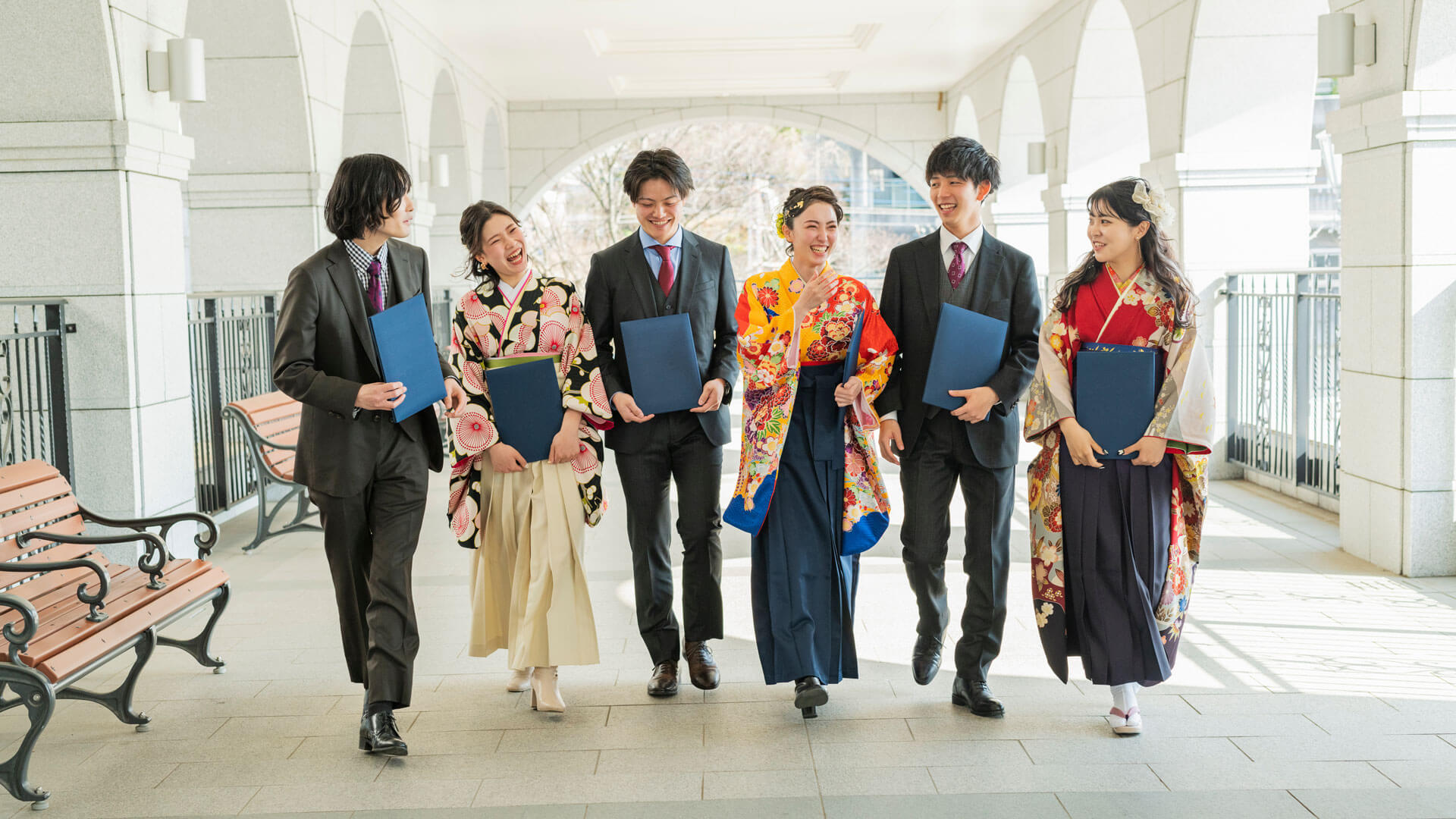Study in Japan: A Journey of Discovery and Growth
Japan, with its rich cultural heritage, cutting-edge technology, and world-renowned educational institutions, has emerged as a top destination for international students seeking quality education and unique experiences. Whether you’re drawn to the bustling streets of Tokyo, the serene temples of Kyoto, or the snowy peaks of Hokkaido, Study in Japan offers a unique blend of tradition and modernity.
Why Study in Japan?

1.Academic Excellence: Japanese universities consistently rank among the best in the world, offering a wide range of programs taught by leading experts in various fields. Whether you're interested in engineering, business, humanities, or the arts, Japan provides opportunities for rigorous academic pursuit and hands-on learning experiences.
2.Innovative Research Opportunities: Japan is renowned for its contributions to scientific research and technological advancements. By studying in Japan, you gain access to state-of-the-art laboratories and research facilities, fostering creativity and innovation in your chosen field.
3.Cultural Immersion: Immerse yourself in Japan's rich culture, tradition, and way of life. From participating in traditional tea ceremonies to exploring ancient temples and modern pop culture, studying in Japan offers a unique cultural experience that goes beyond the classroom. Don’t miss the cherry blossoms in spring or the vibrant festivals throughout the year.
4.Global Networking: Japan's international student community is diverse and vibrant, providing opportunities to build global connections and lifelong friendships. Interacting with students from different backgrounds enhances cross-cultural understanding and prepares you for an increasingly interconnected world.
Application Process for Study in Japan:

1.Research Universities and Programs: Japan boasts a wide range of educational institutions, from prestigious universities to specialized language schools. Research thoroughly to find a school that aligns with your academic interests, language preferences, and location preferences. Consider factors such as program reputation, faculty expertise and available scholarships. Some universities even offer programs taught entirely in English, making them accessible to non-Japanese speakers. Pay attention to application deadlines and submission guidelines specified by each university.
Required Documents for study in Japan:
- Completed university application.
- High school and college transcripts.
- ID card copy
- Statement of purpose.
- Language proficiency test results ( JLPT OR IELTS/TOEFEL)
- Copy of birth certificate (translated and certified in Japanese).
- Family Registration Certificate
- Proof of sufficient financial resources to stay in Japan.
- Letters of recommendation.
- Experience Letters (if any)
2.Visa Application: Once accepted into a program, apply for a student visa through the nearest Japanese embassy or consulate.
Visa Requirements for study in Japan:
- Acceptance into a Japanese institution
- Certificate of Eligibility (COE)
- Financial support
- Passport
- Health insurance
- Language proficiency
- Visa application
- Police clearance certificate
Cost of study in Japan:
- 1.Tuition Fees:
 Tuition fees vary depending on the university, program, and level of study in Japan. Generally, private universities tend to have higher tuition fees compared to public institutions. On average, undergraduate tuition fees range from ¥500,000 to ¥1,500,000 per year, while graduate tuition fees can range from ¥500,000 to ¥2,000,000 per year.
Tuition fees vary depending on the university, program, and level of study in Japan. Generally, private universities tend to have higher tuition fees compared to public institutions. On average, undergraduate tuition fees range from ¥500,000 to ¥1,500,000 per year, while graduate tuition fees can range from ¥500,000 to ¥2,000,000 per year.
- 2.Living Expenses:

- Accommodation: The cost of accommodation varies depending on factors such as location, type of accommodation (dormitory, shared apartment, private apartment), and amenities provided. Each offers a unique experience. Living in a dormitory allows you to connect with fellow students, while a homestay provides an authentic cultural exchange. On average, monthly rent for student accommodation ranges from ¥30,000 to ¥80,000.
- Food: Cooking at home can be more economical than dining out. On average, monthly food expenses for students range from ¥30,000 to ¥50,000.
- Transportation: Japan has an extensive and efficient public transportation system, including trains, buses, and subways. Monthly transportation expenses can range from ¥10,000 to ¥20,000.

- Utilities and Miscellaneous Expenses: Additional expenses may include utilities (electricity, water, internet), textbooks, mobile phone bills, and personal expenses. Monthly miscellaneous expenses can range from ¥10,000 to ¥20,000.
- Health Insurance: International students in Japan are required to enroll in the National Health Insurance (NHI) or a private health insurance plan. The cost of health insurance varies depending on the coverage and provider but typically ranges from ¥1,500 to ¥5,000 per month.
3.Visa and Residence Permit Fees: International students are required to obtain a student visa to study in Japan. The initial visa application fee varies depending on the applicant's nationality and the type of visa required. Additionally, students must pay for the issuance of a residence card upon arrival in Japan.
Scholarships and Financial Aid:
Many universities in Japan offer scholarships and financial aid programs to international students based on academic merit, financial need, or specific criteria. Prospective students are encouraged to explore scholarship opportunities offered by universities, government agencies, and private organizations. Some of them are:
1.MEXT Scholarship (Monbukagakusho Scholarship):
- Offered by the Japanese Ministry of Education, Culture, Sports, Science and Technology (MEXT), this scholarship provides financial support to international students for undergraduate, graduate, and research studies in Japan. The scholarship covers tuition fees, monthly stipend, and round-trip airfare.
- MEXT scholarships are available for various programs, including Undergraduate Students, Research Students, Master's Degree Students, Doctoral Degree Students, and Teacher Training Students.
2. JASSO Scholarships (Japan Student Services Organization):
- These scholarships include:
- Honors Scholarship for Privately-Financed International Students
- Monbukagakusho Honors Scholarship for Privately-Financed International Students
3. Research Grants and Fellowships:
- International students pursuing research or doctoral studies in Japan may be eligible for research grants, fellowships, or assistantships offered by research institutions, government agencies, and academic organizations.
- These grants and fellowships typically provide financial support for research expenses, living expenses, and other related costs associated with conducting research in Japan.
Post-Study Work Opportunities:

Some of the main options available:
1.Designated Activities Visa (Job Hunting Visa): International students who have graduated from a Japanese university or vocational school can apply for a Designated Activities Visa to search for employment in Japan. This visa allows them to stay in Japan for a specified period (usually up to six months) to seek job opportunities. Once they secure employment, so they can apply for a work visa.
2.Engineer / Specialist in Humanities / International Services Visa: This visa category is specifically for foreign nationals who have found employment in Japan as engineers, researchers, or specialists in humanities or international services. It is suitable for graduates with technical skills or expertise in fields such as engineering, IT, finance, or education.
3.Highly Skilled Professional Visa: This visa category is designed to attract highly skilled foreign professionals to work in Japan. International students who meet certain criteria, such as earning a high salary, possessing advanced degrees, or demonstrating exceptional skills, may qualify for this visa.  The Highly Skilled Professional Visa offers preferential treatment, including a points-based system for eligibility and a streamlined application process.
The Highly Skilled Professional Visa offers preferential treatment, including a points-based system for eligibility and a streamlined application process.
4.Entrepreneur Visa: International students who wish to start their own business in Japan can apply for an Entrepreneur Visa. To qualify, they need to submit a detailed business plan and demonstrate sufficient funds to support their entrepreneurial venture. Successful applicants can stay in Japan to establish and operate their businesses.
5.Graduate School Visa Extension: International students who wish to pursue further studies at the graduate level in Japan may be eligible for a visa extension. This allows them to continue their education and possibly improve their career prospects in Japan.
Book an Appointment with Us:

If you need any help regarding application process and got any query, feel free to contact us. Click here to Enroll yourself for admission in Japan.


